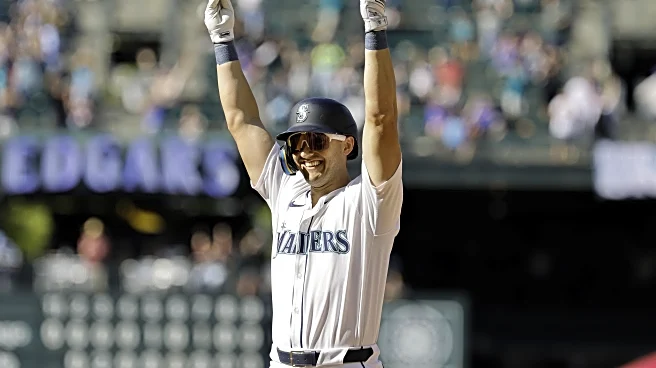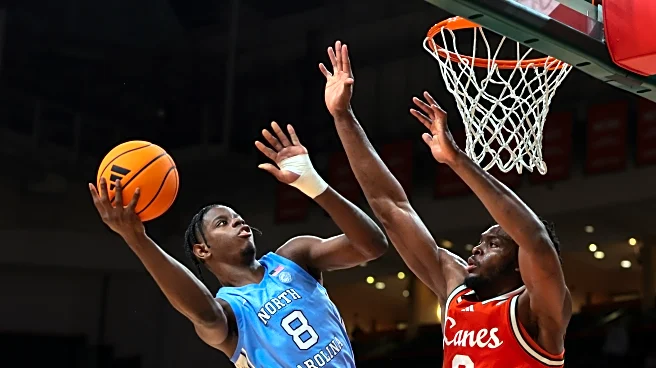What's Happening?
The Seattle Seahawks delivered a commanding performance against the New Orleans Saints, winning 44-13 in Week 3. The game marked the debut of rookie offensive lineman Bryce Cabeldue, whose contribution was pivotal in the Seahawks' victory. The team jumped to a 38-6 lead by halftime, allowing key players to rest ahead of their upcoming game against the Arizona Cardinals. Notable players who rested included Charles Cross, Jaxon Smith-Njigba, Cooper Kupp, and Ken Walker. Despite missing several defensive starters due to injuries, the Seahawks' defense held strong, with players like Riq Woolen and Josh Jobe playing significant snaps. The special teams also excelled, with contributions from Chazz Surratt, D’Anthony Bell, and Eric Saubert.
Why It's Important?
The Seahawks' victory over the Saints highlights the team's depth and strategic planning under new offensive coordinator Klint Kubiak. Resting key players while maintaining a strong performance demonstrates the team's preparedness for the season's challenges. Bryce Cabeldue's successful debut suggests promising future contributions to the offensive line. The game also showcased the Seahawks' ability to adapt defensively despite injuries, which is crucial for their upcoming matches. The special teams' performance indicates improved coordination and experience, which could be vital in close games.
What's Next?
The Seahawks are set to face the Arizona Cardinals in a primetime game at State Farm Stadium. The team will benefit from the rest given to key players during the Saints game, potentially providing an edge against the Cardinals. The return of injured defensive players like Devon Witherspoon and Julian Love could further strengthen the Seahawks' lineup. The team will aim to maintain their momentum and capitalize on their strategic advantages in the upcoming match.
Beyond the Headlines
The Seahawks' strategic resting of players raises questions about long-term player management and contract considerations. The decision to rest players not under long-term contracts could reflect a focus on developing younger talent while managing veteran players' workload. This approach may influence future contract negotiations and team dynamics.










